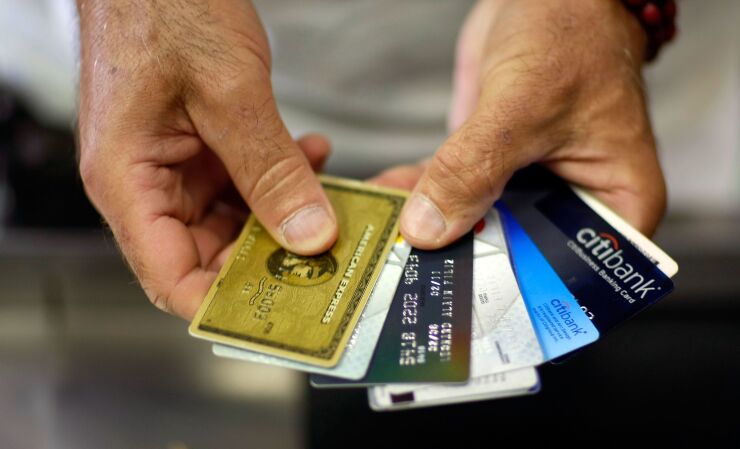For many small-business owners, it's hard to imagine running their business without credit cards. A
Surveys further show that

A handful of credit networks set the price for these everyday credit transactions. The two largest networks, Visa and Mastercard, take a cut of sales as processing fees. Typically around two percent of every credit card swipe, these fees are one of the many costs of doing business factored into the prices of goods and services.
As the CEO of a company that offers a co-branded card with Mastercard, I pay close attention to how the U.S. government regulates the credit industry. Congress is now considering a bill titled the
According to lawmakers, the bill aims to lower the merchant processing fees charged on credit transactions. Under the CCCA, cards issued by banks with more than $100 billion of assets would be required to utilize at least two unaffiliated networks, with only one allowed to be Visa or Mastercard.
The idea is to encourage competition from smaller credit networks that benefit Main Street businesses through lower processing fees and better service — a welcome reprieve for shops still reeling from inflation and supply chain struggles. Yet on closer inspection, this well-intentioned move fails to consider the downstream implications.
If compelled to engage a second network other than Visa or Mastercard, card-issuing institutions would have to route transactions over payment networks such as American Express, Discover or the handful of lesser-known alternatives such as NYCE Star and Shazam. Existing credit card infrastructure was designed to route these transactions over a single payments network, and
My company would not be immediately required to comply with this change (our card is issued by First National Bank of Omaha, a regional bank managing less than $100 billion), but I'm deeply concerned about how it changes the economics of credit programs for consumers.
Large banks will not only be forced to invest in overhauling the infrastructure of a second payment network, but the resulting lower processing fees would also erode the revenue stream that funds many cards' reward programs. In many cases, the numbers simply wouldn't make sense for these banks or their cobrands, likely reducing the number of available credit products and endangering the loyalty programs paid for by card processing fees.
Additionally, some experts worry that the CCCA would unintentionally harm security. According to Jeff Tassey, chairman of the Electronic Payments Coalition, the legislation's race-to-the-bottom focus on lowering fees would stifle innovations that make checkout a better and more secure experience, including tokenization, one-click checkouts and advanced fraud protection.
Even worse, Tassey warns that the bill forces transactions to route over smaller networks that have not made the same technology investments to protect consumers and merchants, potentially exposing them to cybersecurity threats.
"Any intervention like this would bring on all kinds of knock-on effects that would do great damage to the global networks," Tassey said.
Every bill has its critics, of course, but we already know that similar reforms have failed in the past. Sen. Dick Durbin, a lead sponsor of the pending CCCA, tacked on an amendment to the Dodd-Frank Wall Street Reform and Consumer Protection Act of 2010 to lower merchant processing fees on debit cards to benefit small businesses.
A University of Pennsylvania
And while businesses did realize savings from the fee reduction, they didn't pass those savings on to consumers. A
With the CCCA, history looks set to repeat itself. The Merchant Payments Coalition, representing roughly 1,700 of the nation's largest retailers, recently sent
It's a different story for the little people who rely on credit cards to float their expenses. One analyst
I applaud lawmakers for their increased advocacy on behalf of small businesses, but the details matter. If passed, this bill would line the pockets of megaretailers who are unlikely to pass savings on to the consumer while destroying the economics of credit products for consumers and small businesses.
I urge Congress to go beyond easy answers and compelling soundbites and instead grapple with the full consequences before moving forward with this legislation.






